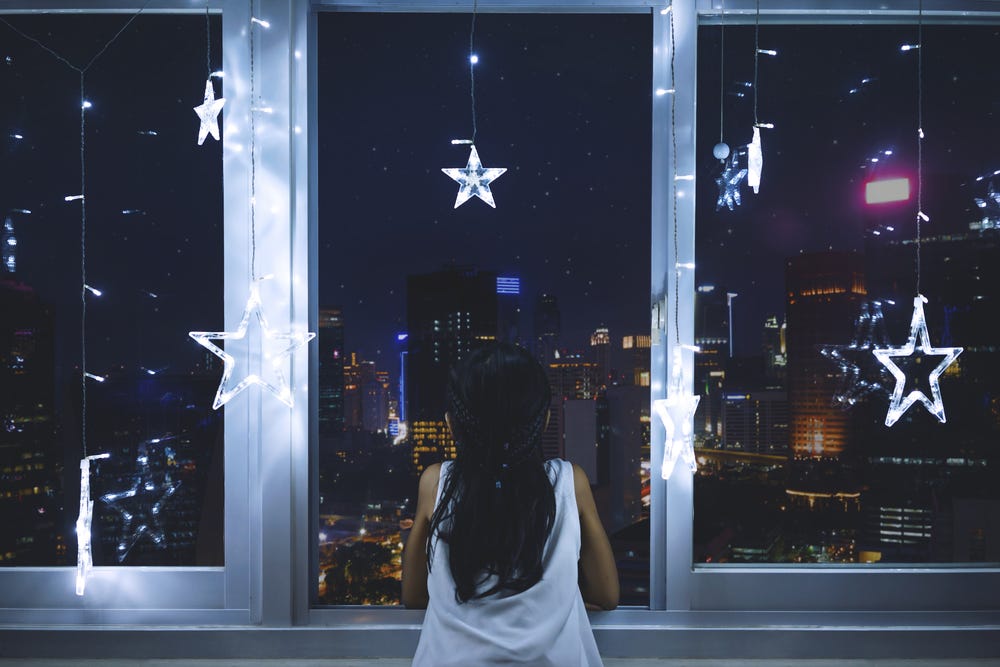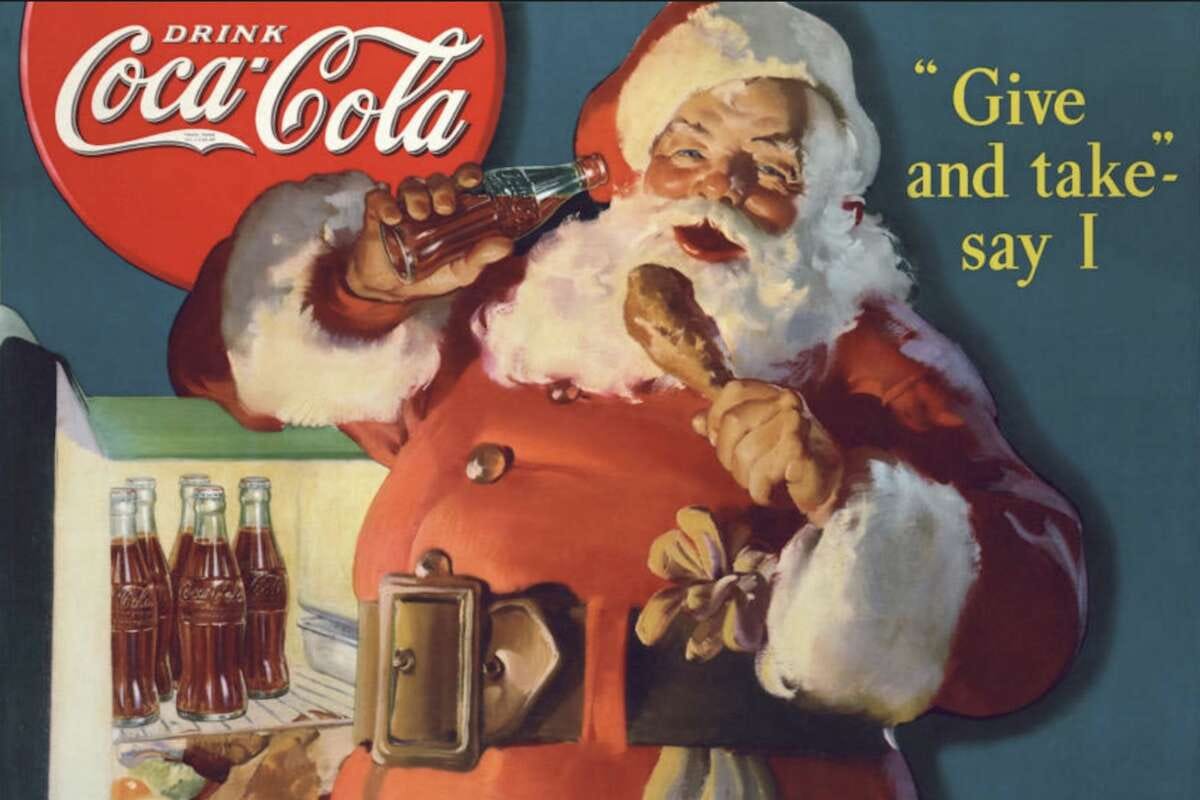Is Christmas the loneliest time of the year?
Loneliness during Christmas is a complex issue influenced by societal expectations, personal circumstances, and mental health factors.
Contrary to some myths, it’s not true that Santa Claus was invented to promote Coca-Cola. The character of Santa Claus has a long history that predates Coca-Cola's use of his image in advertising.
Santa Claus evolved from St. Nicholas, a 4th-century Christian saint known for secret gift-giving and kindness to children. Over the centuries, various cultural traditions blended to form the modern image of Santa Claus. The Dutch Sinterklaas, a figure based on St. Nicholas, was one of the key influences.
The modern image of Santa Claus as a jolly man in red with a white beard became popular in the United States in the 19th century. This portrayal was significantly shaped by the 1823 poem "A Visit from St. Nicholas" (commonly known as "The Night Before Christmas") by Clement Clarke Moore and illustrations by Thomas Nast in the late 1800s. I’m sure many of us would know or have heard the poem:
“Twas the night before Christmas, when all through the house Not a creature was stirring, not even a mouse; The stockings were hung by the chimney with care, In hopes that St. Nicholas soon would be there; The children were nestled all snug in their beds; While visions of sugar-plums danced in their heads;”
Coca-Cola began using Santa Claus in their advertising in the 1930s. The Coca-Cola Santas, created by artist Haddon Sundblom, helped shape the modern American image of Santa with his red suit and cheerful, rosy-cheeked appearance. While these advertisements popularised this specific portrayal of Santa Claus, they did not create the character. When Coca-Cola featured him in their ads, Santa Claus was already well-established in American and European culture.
In the Western world, and, to a great extent, across many cultures, we are constantly reminded that Christmas is a time of ‘coming together’, or family, of celebration and connection. Except for many, like the myth of Santa Claus, this simply is not true.
A survey by Mental Health UK of over 1,000 people found that 80% experienced worsening mental health symptoms over the festive period, and nearly three-quarters felt lonelier during this time – even when surrounded by family and friends.
“84% find Christmas or other festive periods to be stressful or triggering.
77% think their mental health problems worsen around the Christmas and the festive period.
73% experience loneliness and isolation even when surrounded by people during Christmas and festive periods.
75% feel pressure to enjoy or put on a pretence during Christmas or the festive period.”
Loneliness during Christmas is a complex issue influenced by societal expectations, personal circumstances, and mental health factors. The feeling of loneliness can be exacerbated by the contrast between idealised holiday images and one's personal reality. Importantly, these feelings of loneliness are common and affect a wide range of individuals.
Why do so many of us feel lonely?
Not everyone feels loved and supported.
We are told that Christmas is about spending happy times with family and friends. But what if you do not have those people close to you - perhaps you are separated geographically or emotionally. I recall a Christmas by myself when I lived in Alice Springs in the 1980s. I was housesitting for a family who had ‘gone south’ for the holidays. I vividly recall roasting a chicken and sitting down to lunch with just their German Shepherd for company. My closest family members were hundreds of kilometres away, and of course, this was before the internet, Skype and Facetime. The only option would be a horrendously expensive long-distance phone call I couldn’t afford. I felt low, disconnected, discombobulated.
There are so many triggers.
We can be triggered by memories of happier times, of a past relationship or friendship that no longer exists. Perhaps a deceased parent or relative - we have the realisation that we will never see them again. We are bombarded with advertising showing happy smiling faces gathered around tables groaning under the weight of fabulous feasts and piles of presents under decorated trees. Our ears are assaulted with the sounds of Mariah Carey as we battle the crowds in the local shopping centres.
Expectations don't usually match reality.
With all this build-up, expectations are high over Christmas, and not everything will inevitably be as rosy as the media might lead us to believe. Bringing together family and friends might reopen old antagonisms. Some people might feel pressured to deliver an unforgettable Christmas experience and find the burden too much, leading to friction.
Strange and quirky traditions always succeed in rating a mention on the nightly news, like the curious case of the 1962 British sketch Dinner for One. Originally performed on stage in a theatre, a German television company filmed it.
“It has become traditional viewing on New Year's Eve in European countries such as Germany, Austria, Switzerland, Denmark, Sweden, Norway, Finland and Estonia, or on 23 December in Norway, and, as of 1995, was the most frequently repeated television programme in Germany. Despite starting on the British stage, the sketch has only recently started to gain recognition in the UK. It was broadcast on New Year's Eve in Britain on Sky Arts from 2018 to 2020.”
It’s been broadcast annually on New Year's Eve here in Australia since 1989.
Of course, the juggernaut Love Actually has gained a reputation as a Christmas classic due to its heartwarming, festive storyline and ensemble cast. I am unsure I can stomach one more watch of Hugh Grant reproducing Tom Cruise’s famous pantless singing slide!
Is it any wonder how many of us feel lonely in the face of this onslaught?
Charles Darwin University’s Dr Buaphrao Raphiphatthana, mental health researcher with the Menzies School of Health Research, says:
“Feelings of loneliness are normal, and it is okay to feel lonely at times, But feeling alone and isolated can contribute to mental illness, which may have serious consequences especially if people are not able to get help.”
However, Dr offers up some constructive advice:
“The good news is there are steps we can all take to overcome loneliness or to help others in our community to feel more connected, particularly over Christmas. If you are worried about being lonely at Christmas, plan ahead. There are many volunteer opportunities around Christmas or on Christmas Day. Not only does this mean you have company on Christmas, you also get a good feeling from helping out. Rather than scrolling through newsfeeds, use Facebook to reach out to friends and plan activities. Find out who is else is going to be around for the holidays and organise an ‘orphan’s Christmas’ – a get together with other people who may be alone for Christmas.”
Different faiths and cultures celebrate Christmas in diverse ways, reflecting their unique traditions, beliefs, and historical contexts. While Christmas is fundamentally a Christian holiday commemorating the birth of Jesus Christ, its observance has expanded beyond strictly religious celebrations to include a variety of cultural practices.
Of course, Christians are focused on the Christmas story - the Nativity, Jesus’ birth. Some Orthodox Christians celebrate Christmas in early January; they fast before Christmas. Jews celebrate Hanukkah, a different holiday around the same time of year.
Muslims do not celebrate Christmas as a religious festival, as Islamic teachings focus on different prophets and events. However, some Muslims, and indeed many other faiths, in predominantly Christian societies may participate in cultural aspects of the season - and that’s certainly the case in Australia.
In many parts of the world, Christmas has become a cultural event where the religious aspect may not be the central focus. In these contexts, Christmas is often associated with family gatherings, gift-giving, festive meals, and decorations like Christmas trees and lights, irrespective of the celebrants' religious beliefs. While rooted in Christian tradition, the holiday's appeal has broadened, allowing diverse interpretations and practices across different faiths and cultures.
I do want to emphasise Christmas isn't universally the loneliest time for everyone. Many people find joy, connection, and community during the holiday season. Additionally, various support systems and community initiatives often become more active during this period to help those who might feel isolated or alone.
We should remember that it's okay to have mixed feelings about the holidays, and taking steps to care for our mental and emotional well-being is essential.
For Christmas 2021, I pushed pretty hard to bring all our family together in the same place at the same time. Dad had been unwell for some years and, in his own words, ‘quietly degrading.’ He was mostly blind, a real trial for a man of words no longer able to read anymore. He had dementia, so whilst he could recall what he ate for breakfast in the summer of 1962, he did not know the day of the week. For the first time in many years, all four siblings gathered, most of us with partners and some of our children. I think I fed a dozen people multiple times over several days with a beautiful Christmas lunch. I even woke early on Christmas Day to bake fresh muffins for breakfast. After lunch, some settled in to play games, whilst others read or napped.
I very much enjoy cooking, so I took great pleasure in planning menus, ensuring I had all the meals organised, checking for recipes that would feed twelve or more, buying ingredients and collaborating with Mum and my siblings - the latter were marvellous at cleaning up, washing dishes to give the cook a break!
Dad spent most of the time sitting quietly in his favourite chair in my lounge room, with all the chatter and the hustle and bustle washing around him. Many of his grandchildren were there, teenagers and adults. From time to time, one would go and check on him, hold his hand, and say a few words. I love that memory.
In July 2022, Dad passed away, quietly and unannounced, in his sleep, dozing after lunch at my sister’s house. I was there as well, along with Mum. I’d invited myself over a couple of days before after Dad had a fall requiring stitches, and I sensed my sister and Mum would welcome another pair of hands.
I am so glad I made all the effort that Christmas. A gathering like that is almost unheard of in my family; we live all over the world, and we all have our own lives, our children, and our work. Bringing us together as a complete family is rare. I have many photos from those days, and I find comfort in occasionally looking at them on my phone because none of us were lonely that Christmas. Especially not Dad. He was surrounded by people who loved him. Despite sometimes differences, mostly stemming from our very different life paths, my brothers and sister, our children, and Mum all united in having a very merry, loving and connected Christmas.
"The lonely one offers his hand too quickly to whomever he encounters." — Friedrich Nietzsche
Next time: My Story of Christmas Loneliness






David, Another well written and moving story. I felt deeply moved by how and what you have written. Thank you my friend you are awesome,
Ian